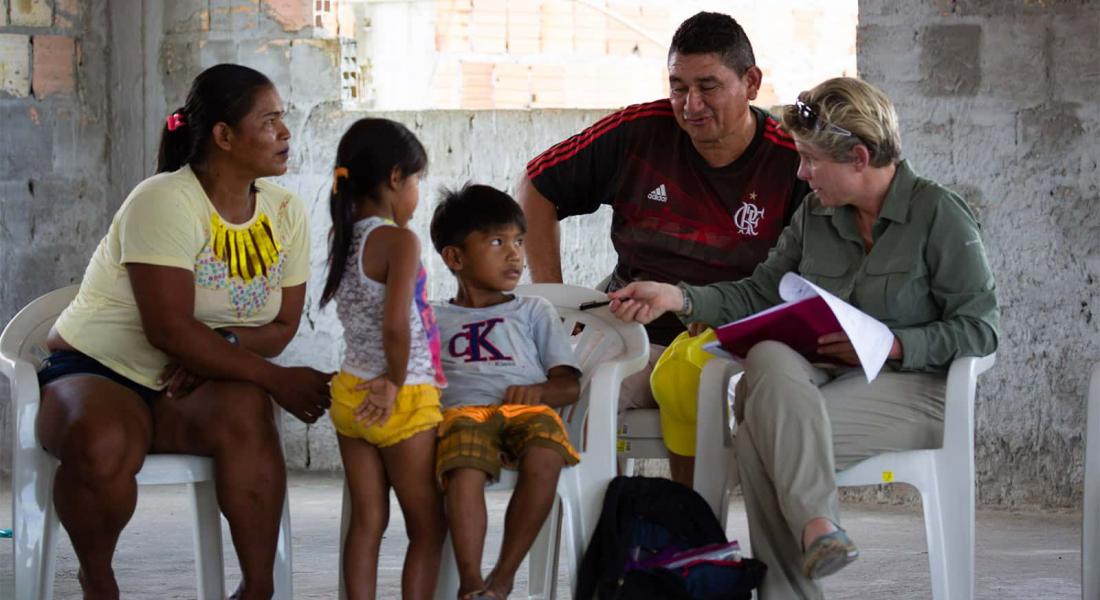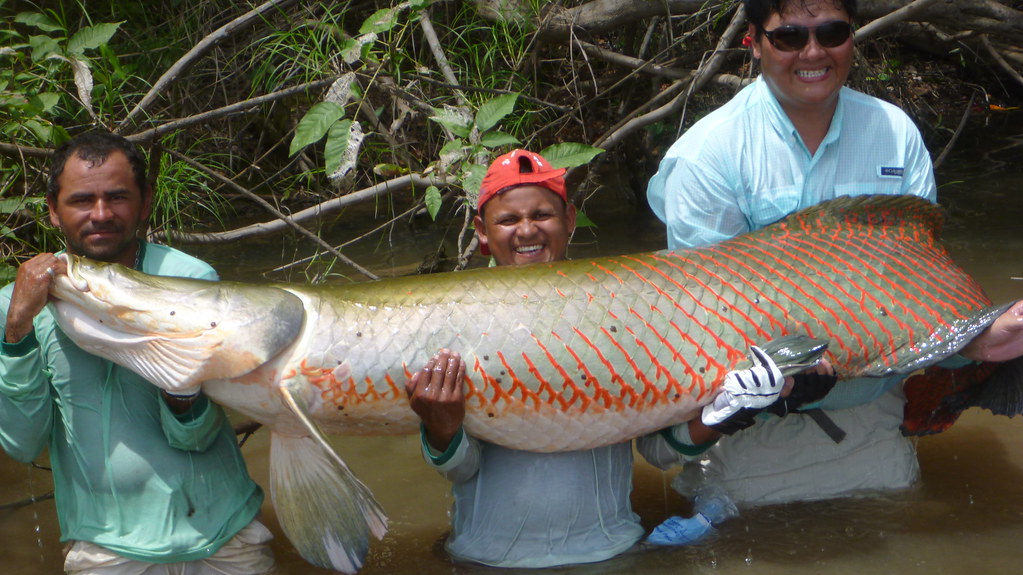
How do remote markets impact communities? Across the world, small producers struggle to get their products to market, and when the markets come to them, struggle with middlemen. These challenges make it harder to sell labor or products, and harder to buy the goods families need.
A new Ford Program research project is studying how improved markets can serve communities in the remotest of contexts—Brazil’s Amazon. In 2018, Notre Dame’s Business on the Frontlines (BOFTL) program and the Amazonas Sustainable Foundation (FAS), a Brazilian NGO, partnered to launch a vibrant fisheries business to support fishing communities in the Amazon.
Aspiring to make the Amazon rainforest worth more standing than cut, FAS promotes sustainable development, environmental conservation, and quality of life in hundreds of river communities. It is through its large network of community mobilizers that we were able to design and execute the research study.
 Bringing the "Dinosaur Fish” to Market
Bringing the "Dinosaur Fish” to Market
At the center of the project is the pirarucu—a prehistoric, air-breathing, “dinosaur fish” that can grow up to 9 feet long and weigh 400 pounds. It inhabits lakes in the deepest parts of the Amazonian rainforest. Communities rely heavily on fishing for pirarucu, with half of their yearly income coming from just a few weeks of fishing.
Twenty years ago, the giant fish was nearly extinct due to overfishing, but as FAS taught communities to manage their commercial fishing operations, pirarucu populations have rebounded. The resurgence was expected to bring significant improvements to the livelihoods of traditional communities—but sadly, it did not.
The communities face an all-too-familiar situation: they do not capture a significant portion of the economic value of their fish. Instead, middlemen and fish processors claim the majority of the profits, and fishermen are forced to accept low prices. If prices remain low, many communities will likely turn to illegal logging, mining, and poaching in order to make ends meet.
Yet, these communities call themselves “children of the forest.” Acting in a capacity similar to US park rangers, community members are often the last line of defense against the pillaging of the rainforest. Building their economic livelihoods becomes vital to protecting the Amazon, and FAS asked the BOTFL team to advise on building and supporting a sustainable pirarucu fishery business .
Investing to Change the Fish Supply Chain
What our investigation revealed was that with a heavy dose of community organization and moderate investments into physical assets, FAS could build a business that earned millions of Brazilian reals per year—and much of the increased profit would flow back to the fishermen. Investment in market infrastructure, transportation, and relationships with end customers would significantly change the fish supply chain. In particular, the fishermen would be empowered to contract and sell their pirarucu directly to consumers, without the use of middlemen.
Last year, FAS invested in a cold-storage facility in Fonte Boa and nine boats to deliver the pirarucu from the protected reserves to markets and customers in Manaus, the Amazonas state capital. Over time, such a pirarucu transportation and processing business should provide a steady source of income for the fishing communities, while supporting the frontline conservation efforts of both the communities and FAS.
On the academic side, we have launched an effort to determine the income and consumption impact of the investments in boats and the storage facility on the fishing communities. Along with myself, the project’s principle investigators include economists Wyatt Brooks and Joe Kaboski, and Sara Sievers of the Keough School of Global Affairs. The second pirarucu fishing season is underway, and we look forward to sharing the results from our research soon!





